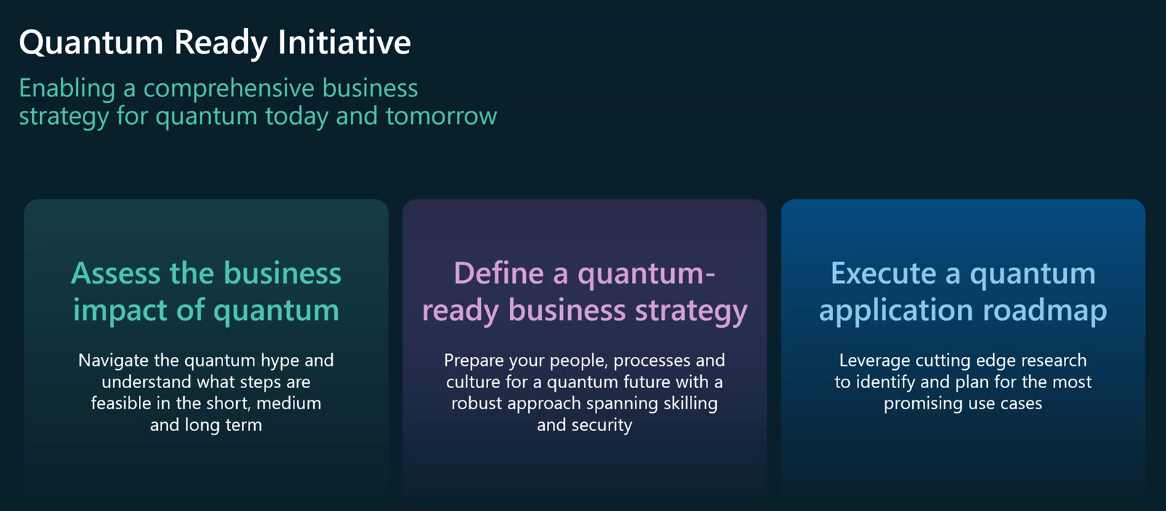Microsoft launched the Quantum Ready Initiative to help businesses prepare for quantum computing as well as align it with business strategy and returns.
The effort lands during an interesting time in quantum computing as vendors scuffle over when the technology will be useful to corporations. Nvidia CEO Jensen Huang put the quantum computing usefulness timeline at 15- to 30-years, but other vendors disagree.
Microsoft's Quantum Ready Initiative launched just a few weeks after the company outlined other quantum computing advances. Microsoft is also building its own quantum computer and partnering to offer services via Azure.
- Quantinuum, Microsoft claim quantum reliability breakthrough
- Microsoft claims hybrid quantum breakthrough with Quantinuum, partners with Atom Computing
The Quantum Ready Initiative includes industry-specific skilling modules, expert-guided workshops and roadmaps for integrating quantum computing and classical systems. Microsoft has a small services unit, but is aiming to build a quantum computing ecosystem that would include large systems integrators in the future.

- CxOs need to focus on quantum computing readiness, not the noise
- Practical quantum computing advances ramp up going into 2025
- Quantum computing all in on hybrid HPC with classical computing
Microsoft's Quantum Ready Initiative rhymes with AWS' Quantum Embark Program, an advisory service.
According to Microsoft, the new Quantum Ready Initiative will enable enterprises to build practical hybrid applications, invest in skilling and access to quantum computing, focus on quantum safety and cryptography and prepare to scale.
Microsoft's focus is on hybrid applications for quantum computing--a direction other vendors have followed. In a nutshell, quantum computing and high-performance computing will be paired for developing artificial intelligence and algorithms.
In the near-term, Microsoft is betting that quantum computing will primarily be leveraged for AI applications in chemistry for protein folding and drug candidate use cases and material science. These projects are more proof-of-concept efforts. For the mid-term, Microsoft sees drug chemistry, manufacturing and energy use cases.
"You can tell things are really moving fast in the quantum space when more and more vendors of the caliber like Microsoft join. With its Quantum Ready Initiative, Microsoft couples hardware readiness, software and adoption in the enterprise to make it easier to move to quantum which excitingly is in the foreseeable future, meaning 2025. Now it's all about figuring out what the first use cases will be that companies will be using Quantum for," said Constellation Research analyst Holger Mueller.


